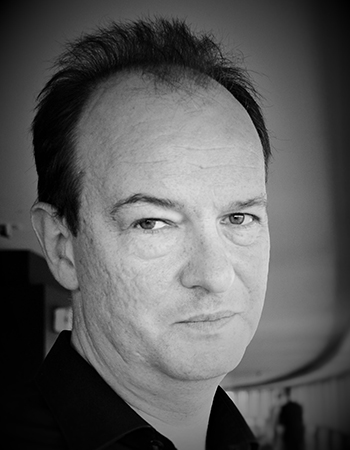Guardian’s chief film critic, Peter Bradshaw, speaks with LSST
By Kunal Chan Mehta | Article Date: 14 December 2016
 Peter Bradshaw is a renowned author, presenter and chief film critic at the Guardian. In a rare interview, he provides LSST students with insights into assessment writing and discusses his views on the controversial Edward Snowden film in which the paper he works for was part of.
Peter Bradshaw is a renowned author, presenter and chief film critic at the Guardian. In a rare interview, he provides LSST students with insights into assessment writing and discusses his views on the controversial Edward Snowden film in which the paper he works for was part of.
Photo source: Peter Bradshaw
What work do you do for the Guardian?
Since 1999, I have been the chief film critic of The Guardian. What that means is that every Friday, I have to publish a wide-ranging review column for seven or so films that have come out that day for national release. I pick a lead film and write a long review of that (750-800 words) and for the other films I write a shorter capsule-sized review of about 300 words each. I also write essays, articles, interviews and longer pieces as well as a wider-ranging “general interest” notebook column.How do you review a film exactly?
A very, very, hard question to answer. You review it by bringing your taste and judgement to bear on what you have seen — and probably also subjective views — and criticise a movie by analysing what it was trying to do, what went right, what went wrong and did it unconsciously reveal something about the film-maker or the culture of which it is a part.How was it reviewing the film Snowden in which the paper you work for was already a monumental part of?
I loved Snowden and didn’t expect to. In fact, liking it was almost embarrassing, giving that, yes, it was a very pro-Guardian film which I suspect didn’t earn it many brownie points with other newspapers! But I think it is Oliver Stone’s best film since his paranoia films of the 90s: JFK and Nixon.What motivational advice can you provide for LSST’s students?
In the immortal words of Chehkov: write, write, write until your fingers break! Practise writing and also practise reading and practise viewing. Look at things critically, analytically. And also do the opposite: surrender to the sensual pleasure of a film, book or essay. But afterwards try to remember how and why it induced that pleasure in you. And then, in your writing, try to replicate that pleasure and convey it to the reader. Be evangelical and passionate. Film writing and reviewing is very different from writing an essay in university — it is something that has to fight for its right to exist. An essay at university it’s compulsory. You have to write it, your teacher has to read it. But a film review has to demand that people read it — it has to jump off the page and grab the eyeballs of people who might just want to read something else.What are your top-three movies?
Again a hugely hard question. My opinion changes every day. But let’s say: RAGING BULL (1980) (dir. Martin Scorsese) A brilliant study of male rage and male futility. IN THE MOOD FOR LOVE (2000) (dir. Wong Kar-wai) A heartbreaking film about forbidden love. KIND HEARTS AND CORONETS (1949) (dir. Robert Hamer) An almost perfect, classic black-and-white British comedy about a serial killer, played by Dennis Price who sets out to murder all the members of an aristocratic family, each played by Alec Guinness. Please follow Peter Bradshaw at: https://twitter.com/PeterBradshaw1 Interview conducted by Mr Ali Jafar, Director of Marketing and AdmissionsPlease email the author of this article kunal.mehta@lsst.ac for any questions or comments.




